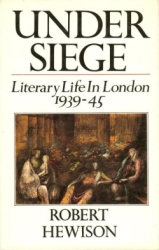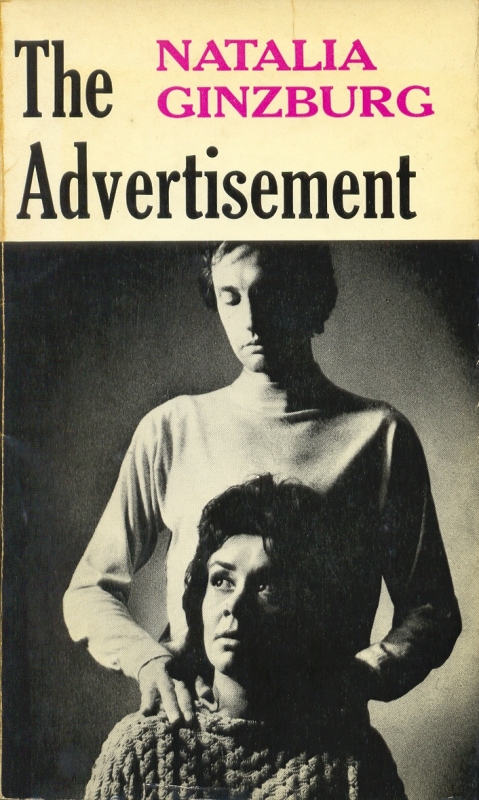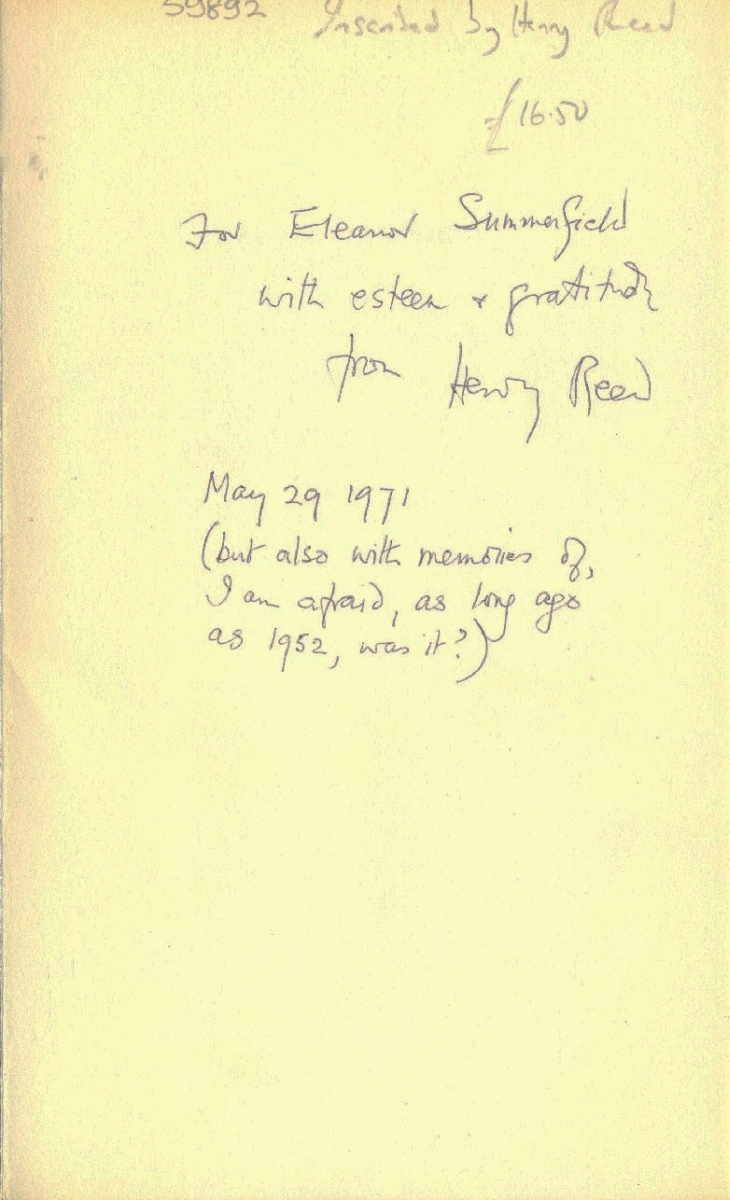In honor (or perhaps despite) of April being National Poetry Month, Comedy Central's Stephen Colbert challenges actor and activist Sean Penn to a Meta-Free-Phor-All, moderated by former Poet Laureate, Robert Pinsky.
|
Shall I Nail Thee to a Summer's Day?In honor (or perhaps despite) of April being National Poetry Month, Comedy Central's Stephen Colbert challenges actor and activist Sean Penn to a Meta-Free-Phor-All, moderated by former Poet Laureate, Robert Pinsky.
Under SiegeSidney Keyes was a youthful poet killed before he had time to register the impact of warfare; Alun Lewis registered the deadening effect of regimentation and the stimulus of travel, but left no record of the military action it seems it was his destiny to seek. Douglas sought action, found it, recorded it and his fear of its consequences, before he too died. Roy Fuller was excluded by circumstance from action and was able, literally from a distance, to mark the changes that wartime forced on society and the enclosed microcosm of the services. Each is an individual experience, and it is because of the quality of their work that they are accepted as the chief poets of the Second World War. But it is appropriate that none of them wrote the poem of the Second World War. That was written by Henry Reed. Thus begins Robert Hewison's analysis of Reed's Lessons of the War poems, in the book Under Siege: Literary Life in London, 1939-1945 (Oxford, 1977). Interestingly, Hewison treats the whole sequence as a single work, mentioning, but not lingering on (or even quoting from), "Naming of Parts."  Hewison prefers instead to look at "Judging Distances" at some length. 'In this case the landscape has to be interpreted in formal terms; the distance cannot be judged emotionally, the territory must be seen as a map. But in the trainee-soldier the surviving civilian persists in reading the topography with his own eyes...' (p. 139). Though Hewison has chosen a slightly less famous poem, the resulting commentary is familiar: 'Individuality has to be sacrificed to the needs of the military machine, the landscape reduced to the terms of tactical necessity, but some small item of personality could be retained — the observing eye of the poet' (p. 140). He then turns to "Unarmed Combat," the last of Reed's Lessons published during wartime, concluding, 'Henry Reed achieves a rare fusion between soldier and poet of the Second World War...' (p. 140).
The Big PictureAmazon.co.uk has an updated page for Carcanet's forthcoming paperback edition of Reed's Collected Poems (due out this July), with a super-large cover image (see "Collected Covered," previously). Available for pre-order, now!
Love, Release, the RevelationI recently added, and failed to note here, Alan Jenkins' 1991 Independent review of Reed's Collected Poems, "In Other Men's Shadows." Jenkins notes the poet's debts to Hardy, Auden, and MacNeice (Reed 'pre-echoes' The Movement poets), but points out
[w]hat is Reed's and Reed's alone is a tonality, an emotional palette, a special feeling for romantic potentiality, the moment before something tremendous happens or after it has receded. The something tremendous — love, release, the revelation of transcendent beauty, all of these at once.... 'Properly,' Jenkins says, the posthumous collection 'rescues Reed from the two-poem limbo to which the anthologies... have consigned him.' Also very recently, I discovered a lovely summary of Reed's poetic influence and influences, in The New Guide to Modern World Literature, by Martin Seymour-Smith (New York: Peter Bedrick, 1985): Henry Reed (1914) has published only one collection of poems, A Map of Verona (1947), but this is widely read — it remained in print for a quarter of a century. There are a few good uncollected poems. He has earned his living as a translator and writer of radio scripts — including the famous 'Hilda Tablet' series. Reed has written several distinctly different kinds of poem: the metaphysical, influenced above all by Marvell; a narrative, contemplative poetry influenced by Eliot (q.v.); parody — as in 'Chard Whitlow', which was Eliot's own favourite parody of himself; a narrative poem influenced not by Eliot but by Hardy (q.v.) — such as 'The Auction Sale'. Reed's justly famous 'Lessons of the War' sequence is in his metaphysical vein, exploiting double entendre to its limit, varying the tone from the wistful to the broadly comic (as in the third poem of the sequence). The less well known 'The Auction Sale' handles narrative as well as it can be handled in this age. Reed is a poet of greater range than is usually recognized; only his Eliotian contemplative poetry really fails to come off, and even this is eloquent and rhythmically interesting.That single paragraph comes the closest I've seen to placing Reed solidly in any school of poetry, even though it leaves him straddling Hardy's Naturalism, The Romantics, and the Moderns. Additionally, I turned up a very nice exploration of the 'military/poetic problem' in "Judging Distances," in Robert Hewison's Under Siege: Literary Life in London, 1939-1945 (New York: Oxford University Press, 1977), which I hope to be able to post soon. Stay tuned!
The View From 1946The Annual Register, a "Review of Public Events at Home and Abroad," is a serial survey of history, politics, and the humanities, published in the U.K. since 1758. My campus library has nearly a complete run, parceled between print volumes and short stretches on microfilm. The trick, apparently, is to pay attention to the record in the online catalog, before realizing in the third floor stacks that the year you're looking for is actually on film in the basement, nine flights below.
The Register volume for 1946 delivers a quick criticism of Reed's first volume of poetry: 'In The Map of Verona [sic] (Cape), Henry Reed, one of the younger poets, develops a meditative romanticism not as yet sure of its own direction.' The fact that his collection received notice at all speaks for Reed's promise as a poet, despite any reservations the editor may have had. The chapter surveying the literature of 1946 mentions several publications which also contain poems written by Reed: John Lehmann's Poems from New Writing, 1936-1946, which collects "Chrysothemis," and "The Wall"; and the journal Orion, which published Reed's "King Mark." Special attention is also paid to Edith Sitwell's The Song of the Cold (which Reed reviewed for the New Statesman in January, 1946), Richard Church's The Lamp, John Pudney's Selected Poems, Theseus and the Minotaur and Poems by Patric Dickinson, Poems from the North by Sir Shane Leslie, Vivian Locke Ellis' Collected Lyrical Poems, C.C. Abbott's The Sand Castle, Laurence Durrell's Plains and People, and Talking Bronco by Roy Campbell, among others. Also noted is an anthology called For Those Who Are Alive (London: Fortune, 1946), an anthology of fifty of the 'youngest poets,' compiled by Howard Sergeant, editor of the journal Outposts. I wonder if, perhaps, something of Reed's is also collected there?
A Visit From Uncle KenI'm sorry. I'm a little addled. Is this Ken Russell's MySpace page? Ken Russell's blog? Ken Russell, referencing my Ken Russell post? Henry Kenneth Alfred Russell?
Copyrights RenewedHere's a great resource which has been making the rounds in various blogs this last week: Stanford University Libraries' Copyright Renewal Database. Here's why it's important:
The period from 1923-1963 is of special interest for US copyrights, as works published after January 1, 1964 had their copyrights automatically renewed by the 1976 Copyright Act, and works published before 1923 have generally fallen into the public domain. Between those dates, a renewal registration was required to prevent the expiration of copyright, however determining whether a work's registration has been renewed is a challenge. Renewals received by the Copyright Office after 1977 are searchable in an online database, but renewals received between 1950 and 1977 were announced and distributed only in a semi-annual print publication. The Copyright Office does not have a machine-searchable source for this renewal information, and the only public access is through the card catalog in their DC offices. The database only contains U.S. Class A (book) copyright renewals. Henry Reed appears three times in Stanford's catalog, for the American editions of some of his translations: Perdu, by Paride Rombi; Père Goriot, by Honoré de Balzac; and Three Plays, by Ugo Betti (copyright renewed by Reed himself, in 1984!).
Signed, From HenrySo, I had my credit card info stolen this week. That was fun. You should have heard the conversation I had with customer service when I called to cancel the card: Amazon.com? No, that charge is legitimate. Barnes & Noble? Yeah, that was me, too. Abebooks.com? Okay, if it was for books, then it was probably me. A new card should come this week.
This month's extravagence was a signed copy of Natalia Ginzburg's The Advertisement (L'Inserzione), published in 1969 by Faber and Faber, and translated from the original Italian by our very own Henry Reed. I don't usually bother with first editions or signed copies, but I felt like I deserved a treat. Now, I must admit, I have only a passing interest in Reed's translations. What I'm really after is completeness, an inclusive collection. Even the items I'm least interested in may turn out to contain an overlooked fact or hidden clue to some larger mystery, rounding out Reed's bio-bibliography (biblio-biography?). This edition of Ginzburg's play, for instance, has a brief "Translator's Note" written by Reed, the details of the first stage performances in London, and a jacket blurb from a Daily Telegraph review: 'From the moment this very interesting play takes shape, it is clear that a tour de force is necessary from the actress playing Teresa; and Joan Plowright rises to the challenge quite superbly.' And then there is the inscription to my newly-acquired copy: For Eleanor SummerfieldMs. Summerfield (BBC obituary), I was delighted to discover, was an accomplished actress, with a litany of film (Internet Movie Database) and radio (BBC Programme Catalogue) credits to her name. She was married to the actor Leonard Sachs for 40 years (though she could claim Sir Richard Burton among the paramours of her youth.) I imagine Reed was introduced to Summerfield while he was writing for the Third Programme. How they became reacquainted in 1971, I have no idea. At the BBC, again? To see more on this book and and others by Reed, take a peek at my bookshelf on LibraryThing.
|
||||||||||||||||||||||||||||||
|
|
|||||||||||||||||||||||||||||||









